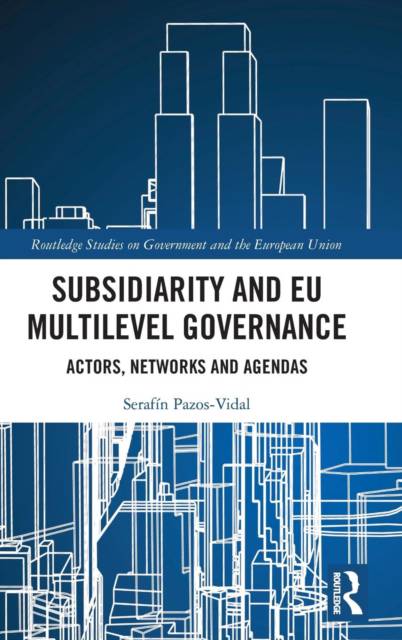
- Retrait gratuit dans votre magasin Club
- 7.000.000 titres dans notre catalogue
- Payer en toute sécurité
- Toujours un magasin près de chez vous
- Retrait gratuit dans votre magasin Club
- 7.000.0000 titres dans notre catalogue
- Payer en toute sécurité
- Toujours un magasin près de chez vous
Description
This book examines the theory and praxis of the legal concept of subsidiarity and the policy paradigm of multilevel governance, providing an updated overview on how subnational and national authorities engage within the EU institutional framework.
Providing a theoretical assessment of real-life case studies, the book reflects on a number of key events from the negotiations of the European Convention to the process that led to the "Brexit" referendum and assesses the key agendas and institutional ethos of most actors involved in EU policymaking. It particularly focusses on the EU engagement of so-called non-privileged actors, such as subnational authorities from the UK, Germany, Austria, Italy, the Netherlands and Scandinavia, as well as national and regional parliaments. The author goes on to examine the sometimes selfish behaviour and individual agendas of the European Commission, European Parliament, Member States and even the European Court of Justice but also identifies many constructive ways of interaction that can decisively frame how EU decisions are made.
This comprehensive book will be a useful reference to students, practitioners and academic researchers working in European politics, policymaking, public policy and EU law and integration.
Spécifications
Parties prenantes
- Auteur(s) :
- Editeur:
Contenu
- Nombre de pages :
- 246
- Langue:
- Anglais
- Collection :
Caractéristiques
- EAN:
- 9781138320345
- Date de parution :
- 19-03-19
- Format:
- Livre relié
- Format numérique:
- Genaaid
- Dimensions :
- 156 mm x 234 mm
- Poids :
- 544 g

Les avis
Nous publions uniquement les avis qui respectent les conditions requises. Consultez nos conditions pour les avis.






